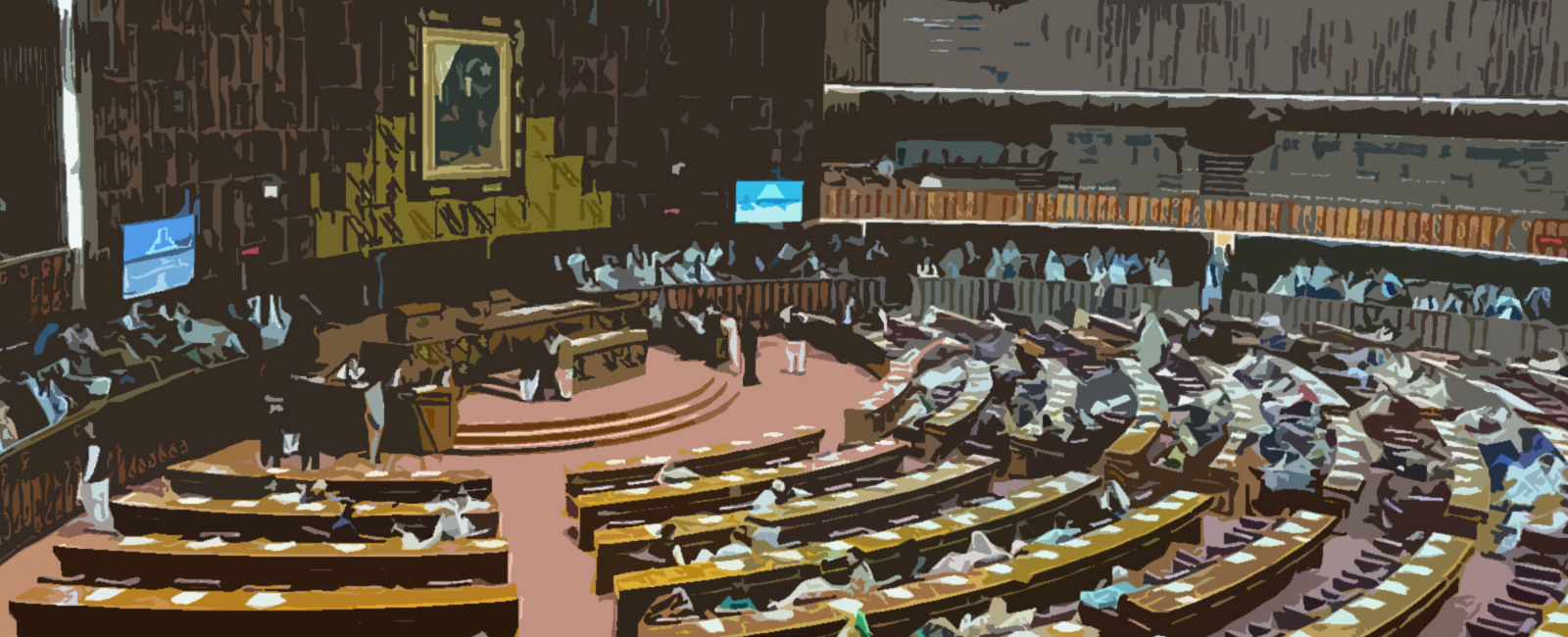Controversial laws dominate Pakistan's first year of legislative action
"Current NA passed a significantly higher number of laws compared to previous four to five assemblies," says Pildat chief

In their first year in office, Pakistan's national and provincial assemblies pursued a range of legislative initiatives, tackling diverse issues. Some of these laws sparked intense public and political debate. While many were aimed at modernising governance and improving public administration, others faced criticism due to their controversial provisions.
Here's a look at the most contentious laws passed during the first year of their current tenure.
National Assembly passes 39 bills
Sworn in on February 29, 2024, the 16th National Assembly passed 39 bills and made as many as 26 amendments to the laws, with the 26th Constitutional Amendment being one of the most controversial ones. It introduced significant changes in the judiciary, triggering extended debate over its level of intervention in the independence of the judiciary and political collusion.
In another step, the National Assembly amended the Islamabad Capital Territory Local Government Act (ICTLGA) after the Election Commission (ECP) announced the elections, resulting in the third postponement of ICTLGA polls. Whenever local government elections are scheduled for Islamabad, the National Assembly has an amendment in place, raising questions about the will of the government to hold elections.
Additionally, the "Elections (Amendment) Bill, 2024" was amended to make retired High Court judges eligible for appointment to Election Tribunals. It also allowed retired District and Sessions Judges and Additional District and Sessions Judges to serve on Election Tribunals for local government election petitions.
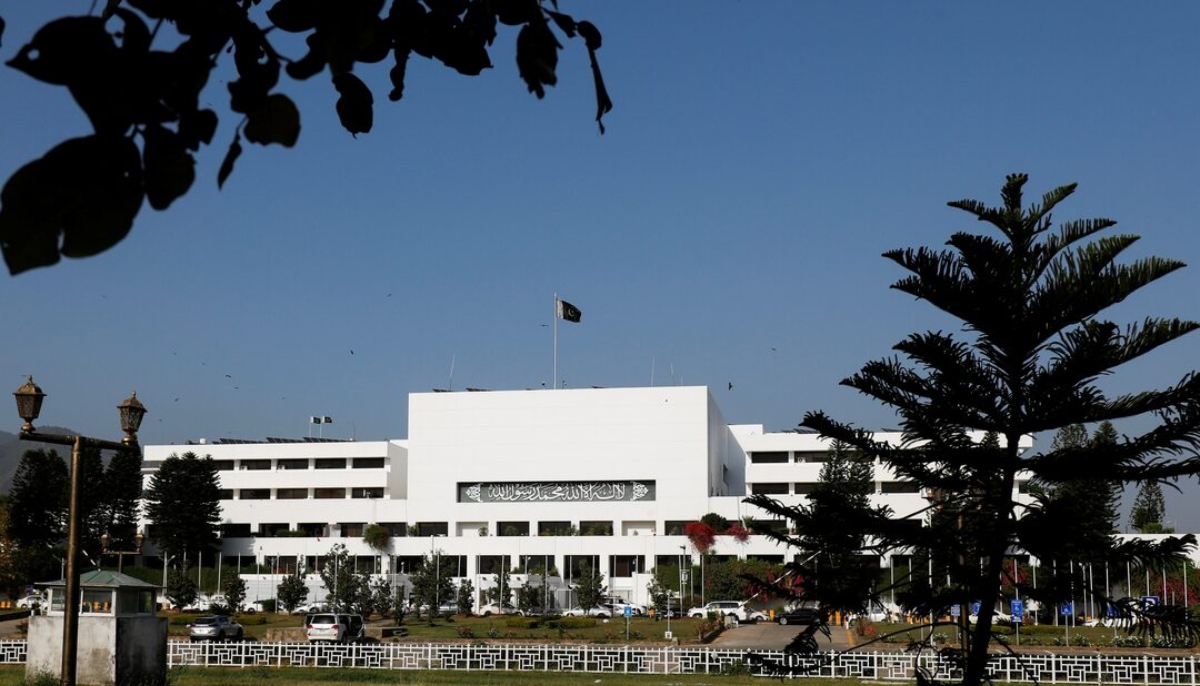
This law has been criticised by the opposition as an "interference with judicial independence." They argue that allowing retired judges to serve on election tribunals could expose them to potential influence from relevant authorities, leading to biased rulings. Furthermore, the provision grants the Election Commission of Pakistan (ECP) unchecked power to appoint retired judges at its discretion, potentially ensuring favourable decisions in election-related cases.
Another amendment was made to the Election (Second Amendment) Act, 2024, prohibiting independent candidates from switching parties. It requires them to join a political party within three days of winning an election. Additionally, any candidate who fails to submit a certificate of political party affiliation before symbol allocation will be considered an independent candidate. Furthermore, parties that fail to submit their reserved seat lists within the given timeframe will forfeit their claim to those seats.
This amendment was challenged in the Lahore High Court by Azhar Siddique, a Supreme Court lawyer, who argued that it violated the Constitution. He contended that the Supreme Court had exercised its constitutional jurisdiction to direct that PTI-backed independent candidates be recognised as party candidates and that the apex court's July 12 judgment could not be overturned through a simple legal amendment but could only be modified by a constitutional amendment. The Supreme Court of Pakistan also reiterated that the amendment could not be applied retroactively to alter its July 12 ruling.
The Toshakhana (Management and Regulation) Act was also passed, requiring both government and private officials to deposit all gifts received within 30 days. The amendment to the Toshakhana Act followed the reference case against former Prime Minister Imran Khan, which led to his five-year disqualification by the ECP.
Another controversial amendment passed by Parliament in its first year was the Pakistan Army (Amendment) Act, 2024, Pakistan Navy (Amendment) Act, 2024, and Pakistan Air Force (Amendment) Act, 2024, which extended the tenure of the chiefs of the armed forces from three years to five.
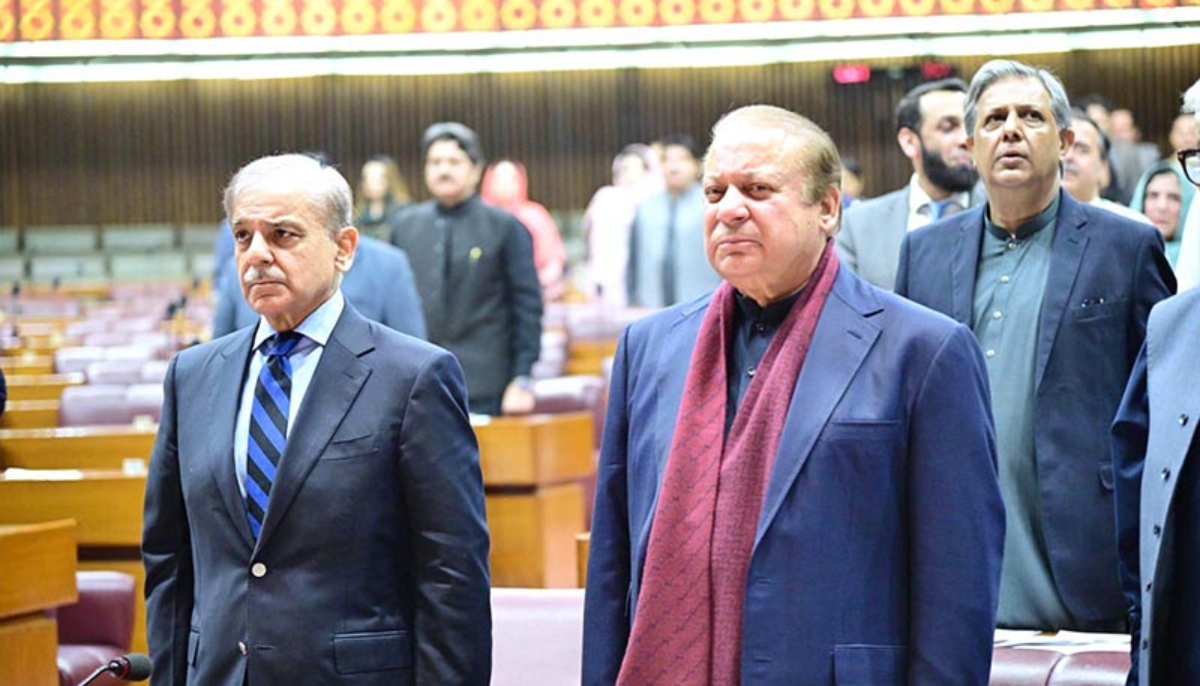
Two key amendments sparked debate: the Supreme Court Number of Judges (Amendment) Bill, 2024, which raises Supreme Court judges to 34, and the Islamabad High Court (Amendment) Bill, 2024, which increases Islamabad High Court judges from nine to twelve to ease case backlogs.
Opposition members, along with political and legal critics, voiced concerns, suggesting that increasing the number of judges could be an attempt to influence the composition of the Supreme Court for political reasons. They also speculated that the move could be part of a broader effort by the Pakistan Muslim League-Nawaz (PML-N) government to shift the balance of power within the judiciary. These were among the six bills passed by the National Assembly in a single day.
The Societies Registration (Amendment) Act, 2024 also stirred controversy when President Asif Ali Zardari initially returned the bill with objections. The act sought to change the registration process for madrassahs (Islamic seminaries), transferring oversight from the Ministry of Education to local deputy commissioners' offices. The delay in signing the bill led to tensions, particularly with the Jamiat Ulema-e-Islam-Fazal (JUI-F), which advocated for the autonomy of religious seminaries. In response, the federal cabinet approved amendments allowing madrassahs to register either with the Directorate General of Religious Education (DGRE) or with the relevant deputy commissioner’s office.
Another piece of legislation that sparked widespread opposition and protests was the Prevention of Electronic Crime (Amendment) Bill, 2025 (PECA). The bill introduced Section 26(A), which criminalises the intentional spread of false information online that could incite fear, panic, or unrest. Offenders may face up to three years in prison, a fine of Rs2 million, or both. Journalists condemned the bill as a threat to free speech. Following the Senate's approval, protests erupted across Pakistan, with journalists vowing to continue their rallies against the law.
Legislative volume vs impact
We spoke to Pakistan Institute of Legislative Development and Transparency (PILDAT) President Ahmed Bilal Mehboob and Pakistan Institute of Parliamentary Services (PIPS) former Executive Director Zafarullah Khan about the National Assembly's first year of legislation.
Mehboob said that the current National Assembly had passed a significantly higher number of laws compared to the previous four to five assemblies, outpacing the assemblies of 2002, 2008, 2013, and 2018 in terms of legislation.
“The legislation from this assembly has been impactful, but that does not necessarily mean it had a positive effect — positive or negative can be very subjective,” said the Pildat president, adding, “However, they have legislated acts that have had a significant impact on the way things are done.”
He said, for example, that the 26th Amendment, although not as far-reaching as the 18th Amendment, had significantly changed the landscape of our courts.
“The same goes for the law regarding procedures and practices and the law nullifying the Supreme Court’s decision about reserved seats — both in terms of impact and numbers, this assembly is quite significant compared to previous ones.”
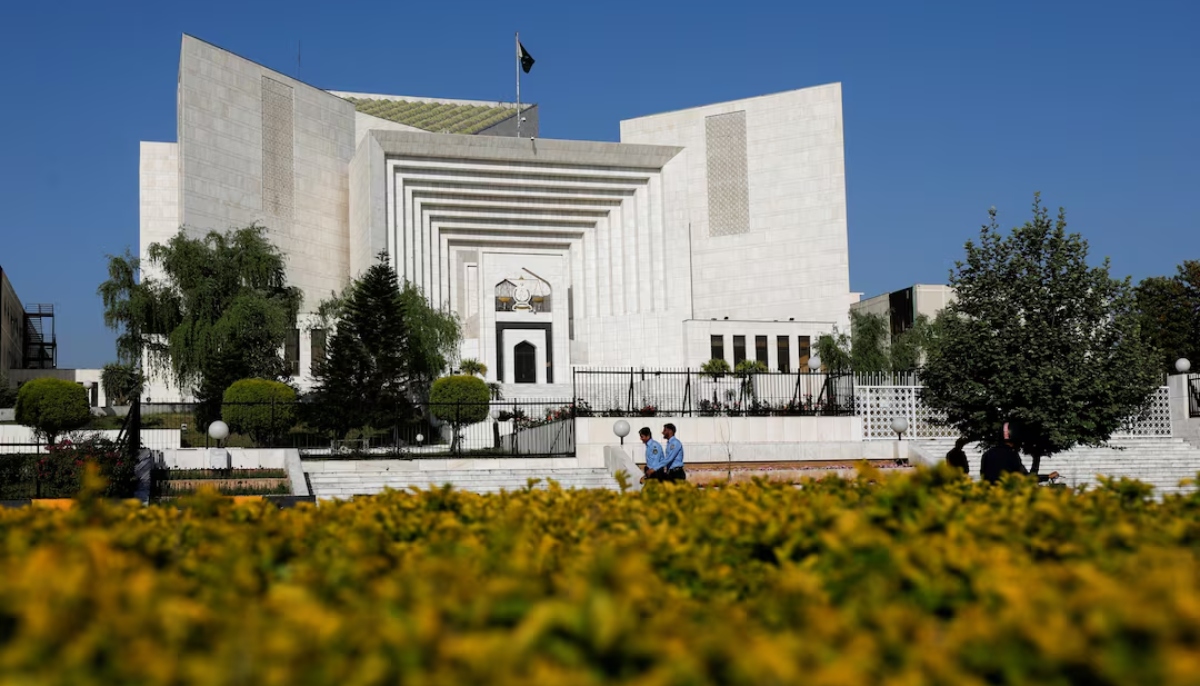
Mehboob further added that however, on inclusivity — meaning passing laws with consultation and developing some sort of consensus — this assembly was far behind, as almost all the laws it passed had very little contribution from the opposition, except when it came to increasing their salaries.
“On that, there was broad consensus among all parties, including PTI, but on everything else, there was no consensus,” the Pildat chief said.
Former PIPS official Khan, on the other hand, believes that parliament still needs to take a much more proactive approach. He appreciated the National Forensic Agency Act, calling it a major requirement.
“The local government elections keep getting delayed due to amendments in the Islamabad Local Body Act,” Khan said lamenting and pointing out that amendments to the Election Act had negatively affected the tribunal system.
“A culture is developing in Pakistan where laws are passed in five minutes without debate or discussion.
“Sometimes, eight to ten laws are passed in a single day. When the time comes to interpret these laws, one key aspect is the intent of the legislators — why did the lawmakers create this law? But if a law is passed without debate or discussion, how can we determine the intent?” he said expressing concern.
Khan, however, considers the Speaker’s Conference held in the Parliament after a gap of ten years a positive development.
Punjab Assembly
The Punjab Assembly took oath on February 23, 2024. Since then, it has introduced 18 bills, of which 16 became law.
The most controversial bill passed by the provincial assembly was the Punjab Defamation Act, 2024. Despite protests from journalists, opposition politicians, and widespread criticism of its harsh provisions, the assembly passed the act. The proposed legislation calls for the establishment of a special court to prosecute individuals involved in the creation, distribution, or broadcasting of "fake news."
Another contentious piece of legislation was the Punjab Agriculture Income Tax (Amendment) Bill, 2024, which passed despite a boycott of the proceedings by the PPP and the rejection of all amendments proposed by Pakistan Tehreek-e-Insaf (PTI). The amendment removes exemptions on farm income and extends taxation to the livestock sector. Effective from January 1, 2025, the legislation imposes a “super tax” on high-income farmers.
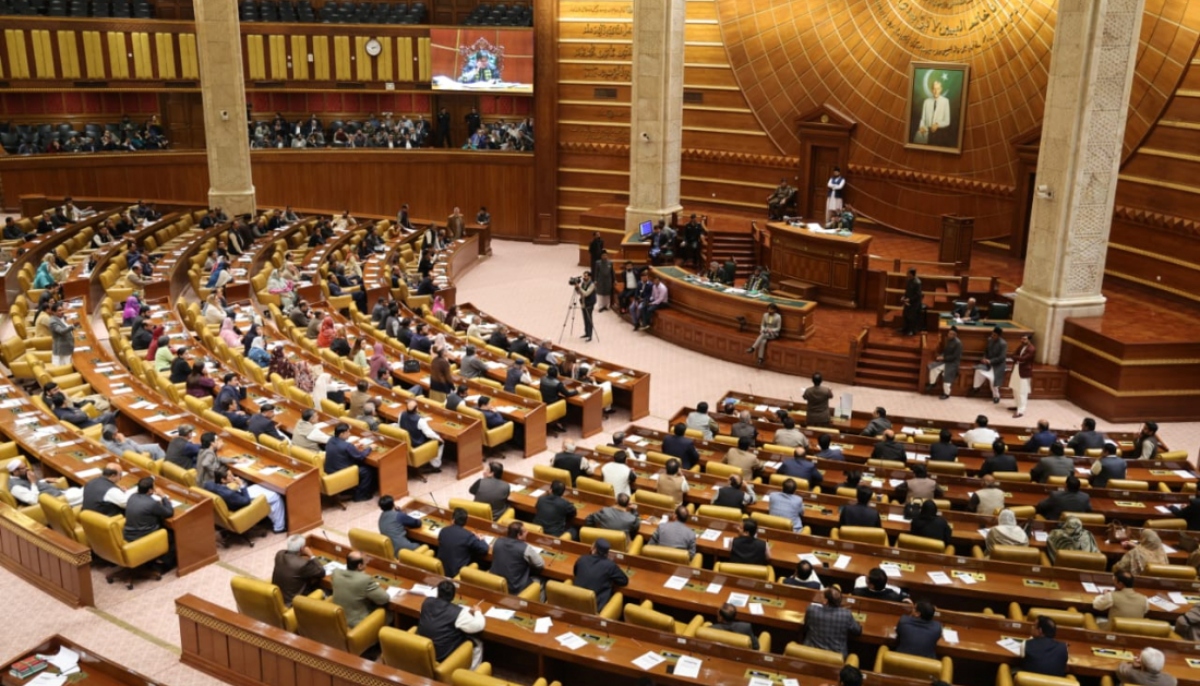
The law also introduces a daily fine of 0.1% as a penalty for late payment of taxes. For example, a fine of Rs10,000 will be imposed on incomes below Rs1.2 million, Rs20,000 on incomes under Rs40 million, and Rs50,000 on incomes exceeding Rs40 million.
While the government asserts that these changes will overhaul the agricultural tax system and enhance revenue, the legislation has faced criticism. Concerns have been raised about its potential economic impact on farmers and the agricultural sector, especially considering the existing challenges they already face.
The Punjab Healthcare Commission (Amendment) Act, 2024 has faced criticism for potentially undermining the commission's autonomy. Notably, former chief secretary Salman Siddique resigned as commissioner of the Punjab Healthcare Commission in protest against what he viewed as an erosion of the commission's independent status.
Following this, the Punjab government dissolved the commission under the same amendment. Acting on the decision of the provincial cabinet, the competent authority removed seven members from the Board of Commissioners, in accordance with Section 6(1)(a) of the Punjab Healthcare Commission (Amendment) Act, 2024.
KP Assembly
The Khyber Pakhtunkhwa (KP) Assembly was inaugurated on February 28, 2024, and has since introduced 40 bills, 32 of which have been enacted into law. One of the most scrutinised bills was the Khyber Pakhtunkhwa Ministers (Salaries, Allowances, and Privileges) (Amendment) Bill, 2024, raising the salaries and allowances for provincial ministers significantly. The legislation increased the house rent allowance for ministers from Rs70,000 to Rs200,000 and the furnishing budget from Rs500,000 to Rs1 million.
Another noteworthy piece of legislation that drew attention was the Khyber Pakhtunkhwa Police Amendment Bill, 2024. Initially revoked over concerns raised by law enforcement personnel, the bill was reintroduced and approved by the assembly. The legislation grants the chief minister the power to appoint and transfer police officers of grade 18 and above. It also requires the police department to implement any law-and-order directives issued by the chief minister.
In a further move, KP has appointed the chief minister as the chancellor of all public universities. The Khyber Pakhtunkhwa Universities Amendment Act, 2024 replaces the governor with the chief minister in this role, granting them the authority to appoint vice-chancellors.
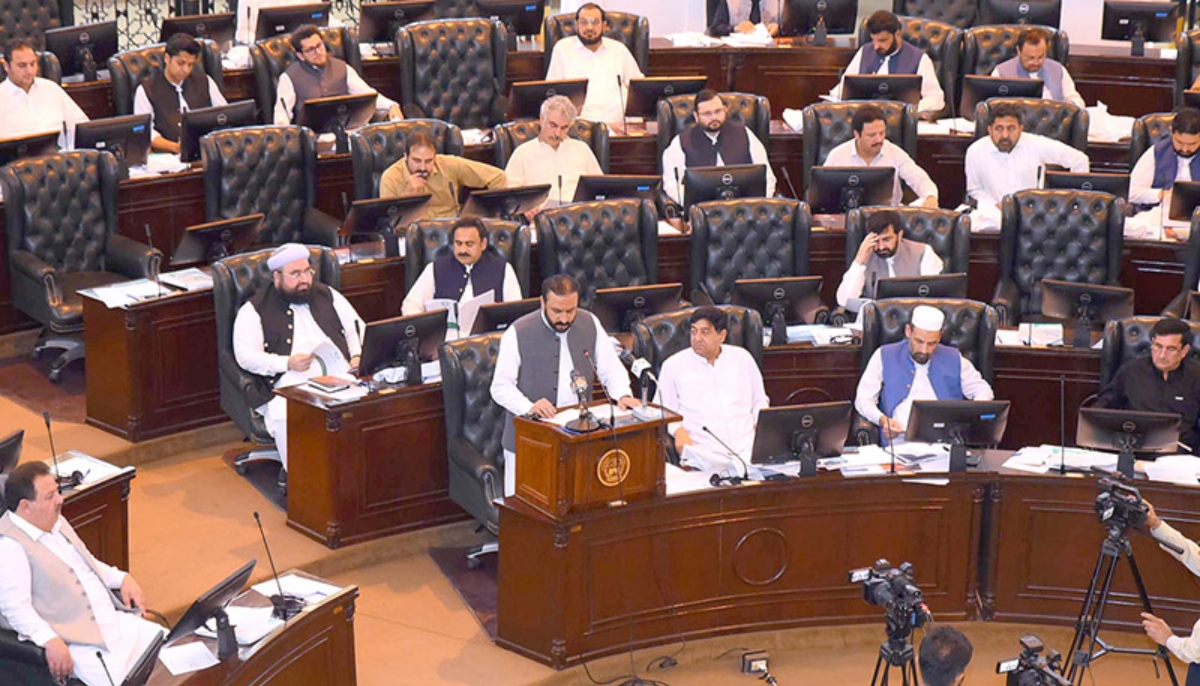
Additionally, the Khyber Pakhtunkhwa Overseas Pakistanis Commission Act, 2025 is also another such development. Initially returned by Governor Faisal Karim Kundi, who argued that issues concerning overseas Pakistanis fell under federal jurisdiction, the Act established the KP Overseas Pakistanis Commission to address the concerns and rights of Pakistanis living abroad, particularly those from Khyber Pakhtunkhwa.
Khyber Pakhtunkhwa has passed the Khyber Pakhtunkhwa Agricultural Income Tax Bill, 2025, introducing a progressive tax on agricultural income, with rates starting at 15% for earnings between Rs600,000 and Rs1.2 million, and rising to 45% for incomes exceeding Rs5.6 million. A super tax is also levied on those earning more than Rs150 million annually from agriculture. An annual tax is imposed on those with over 50 acres of cultivated land or 100 acres of uncultivated land.
Governor Faisal Karim Kundi has strongly opposed the bill, calling it unjust and harmful to farmers. He argues that it unfairly burdens farmers who are already struggling with inflation and could enable money laundering. Kundi has pledged to work with farmers on future actions and warned of protests if the government doesn’t reconsider.
The Khyber Pakhtunkhwa Employees (Removal from Service) Bill, 2025, passed on January 27, targets employees appointed by the caretaker government between January 22, 2023, and February 29, 2024, considering these appointments unlawful. The bill excludes those recruited through the Public Service Commission, court orders, or specific quotas.
The government argues the caretaker administration overstepped its constitutional mandate by making over 10,000 appointments. The finance department estimates that 9,662 employees will be affected, including those from various sectors like police, education, and local government. Opposition members argue the bill unfairly penalises lower-grade employees while sparing senior officials who authorised the appointments.
Sindh Assembly
The Sindh Assembly which started its legislative journey on February 24, 2024, has enacted eight laws to date. Three of these are particularly significant.
The Registration (Sindh Amendment) Act, 2024 introduces a system of e-registration for immovable property. This system allows online applications, biometric verifications, and electronic payments, streamlining the property registration process.
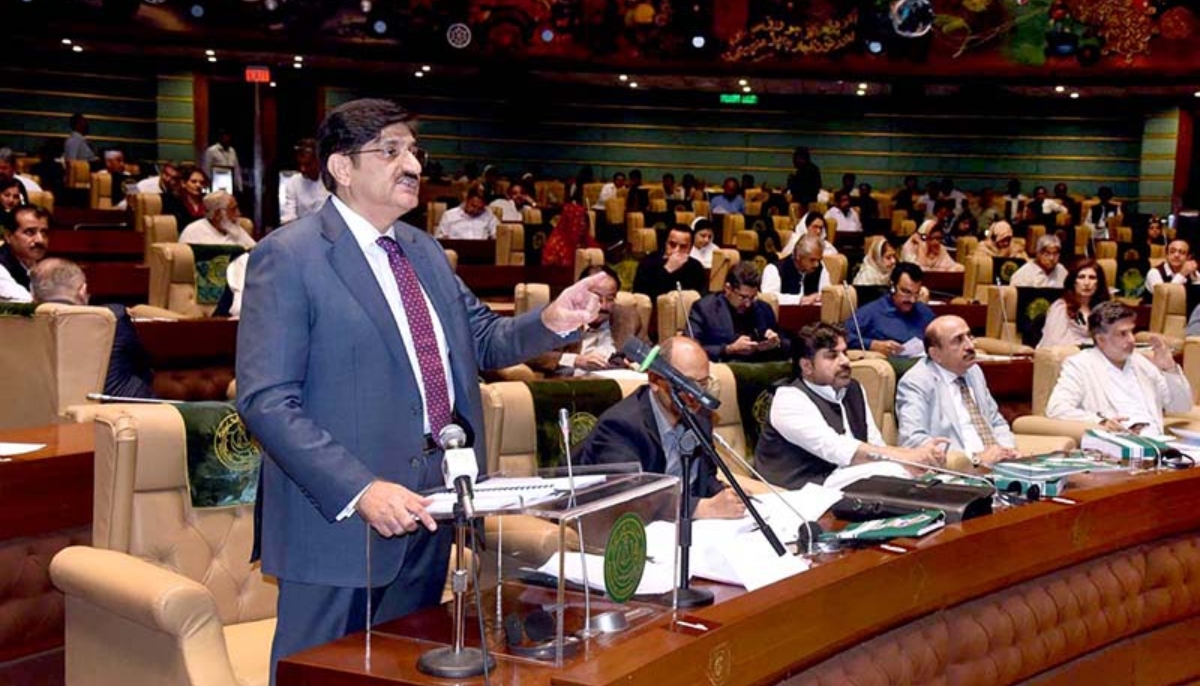
The Sindh Civil Servants (Amendment) Act, 2024 reforms the pension system for civil servants in Sindh. Employees appointed after July 1, 2024, will be part of the new Sindh Defined Contributory Pension Scheme (SDCPS), which requires employees to contribute 10% of their salary, while the government adds 12%. The funds are accumulated in individual accounts and paid out as a lump sum at retirement. Employees hired before this date will remain under the old pension system.
Another significant piece of legislation is the new agriculture tax law. The law excludes livestock from the agricultural income tax framework and shifts tax collection from the Board of Revenue (BoR) to the Sindh Revenue Board (SRB). Landowners who conceal their cultivated land will face penalties. Small agricultural companies will be taxed at 20%, while larger firms will pay 28%. Farmers with annual earnings up to Rs150 million are exempt, while those earning between Rs150 million and Rs200 million will pay a 1% tax, with higher income brackets taxed at rates up to 10% for incomes exceeding Rs500 million. The Sindh cabinet has warned, however, that implementing the tax could lead to higher prices for vegetables, wheat, and rice.
Balochistan Assembly
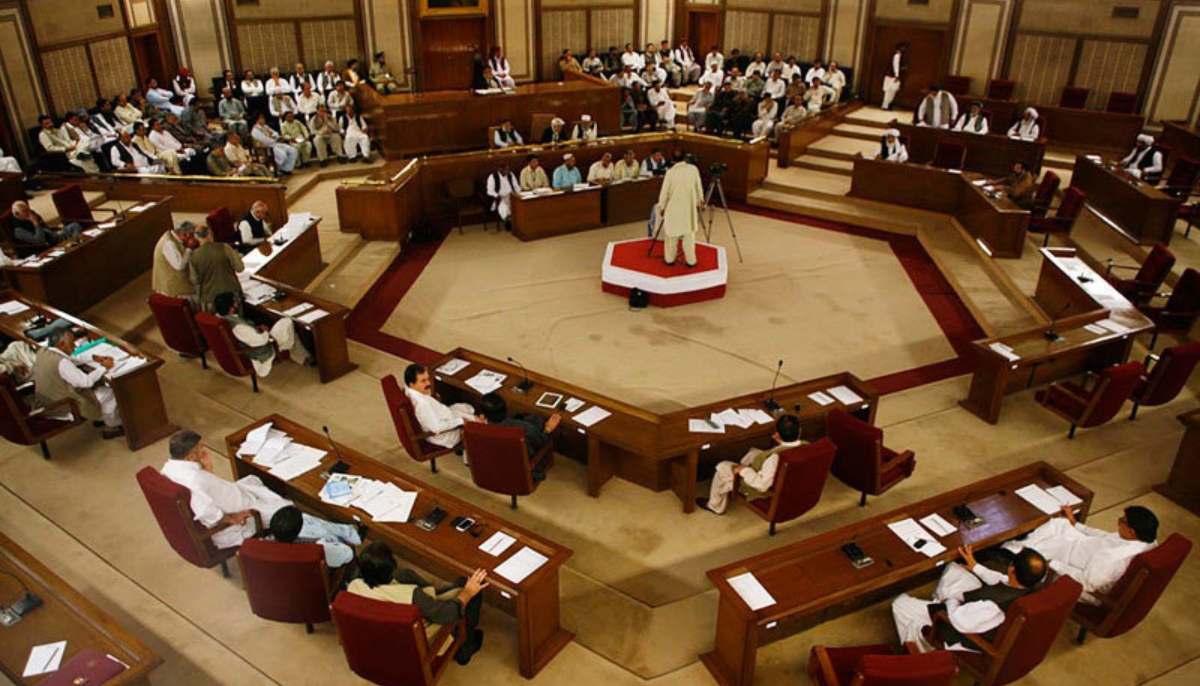
The Balochistan Assembly took oath on February 28, 2024. Since then, it has introduced five key legislative acts: the Balochistan Finance Act, the Defence Housing Authority Quetta (Amendment) Act, the Public Welfare Hospital Sui (Amendment) Act, the Balochistan Center of Excellence on Countering Violent Extremism Act, and the Balochistan Security of Vulnerable Establishments Act.
The Balochistan Assembly has passed fewer laws than the other provincial assemblies.



